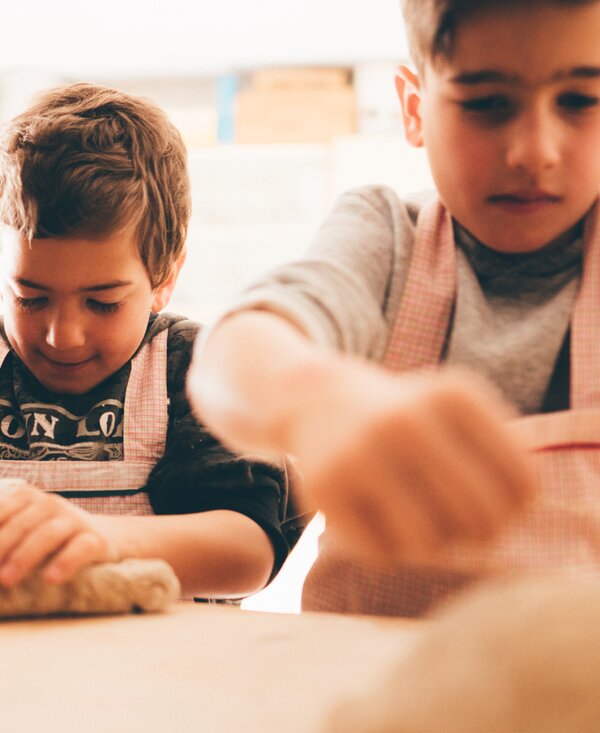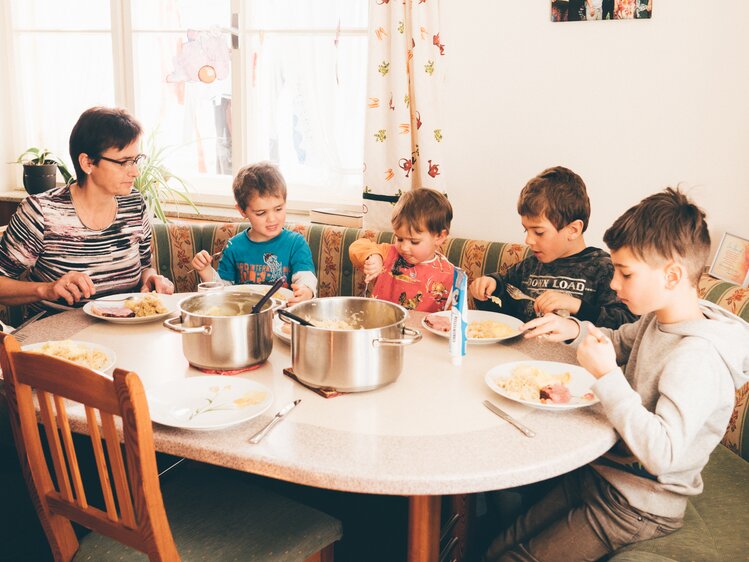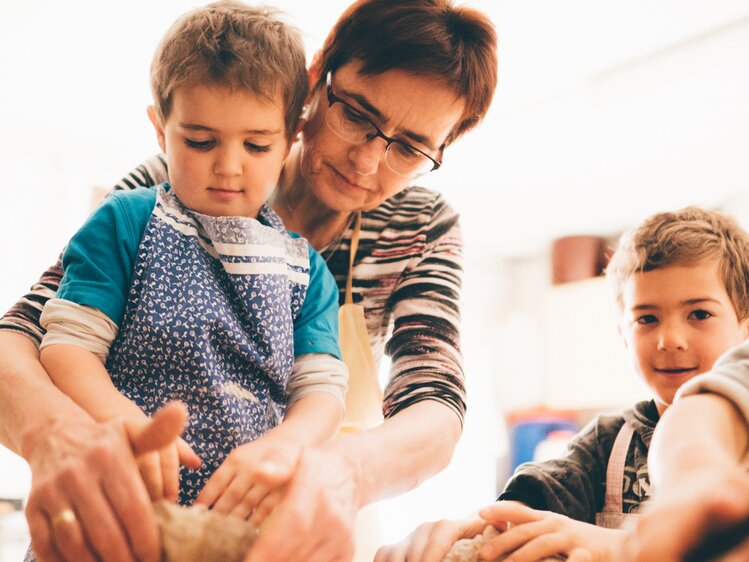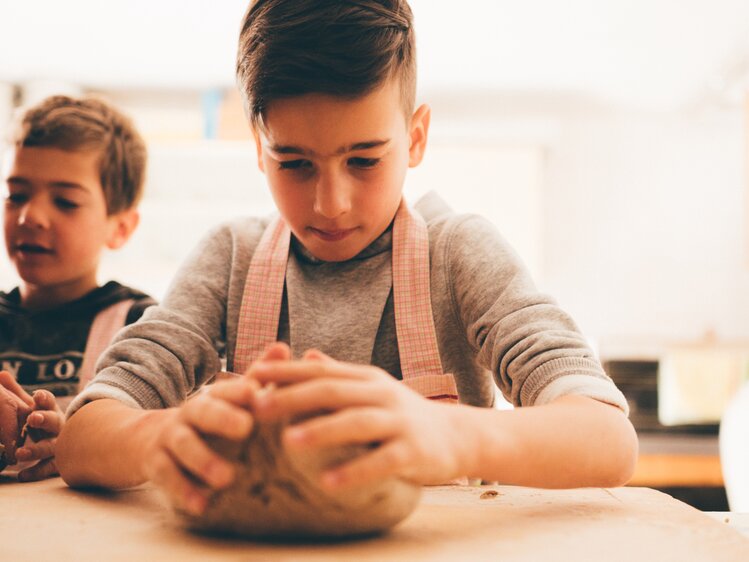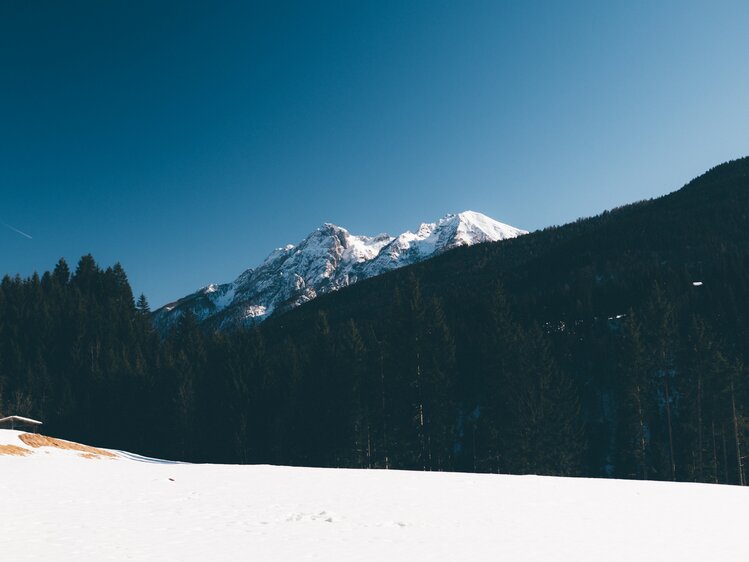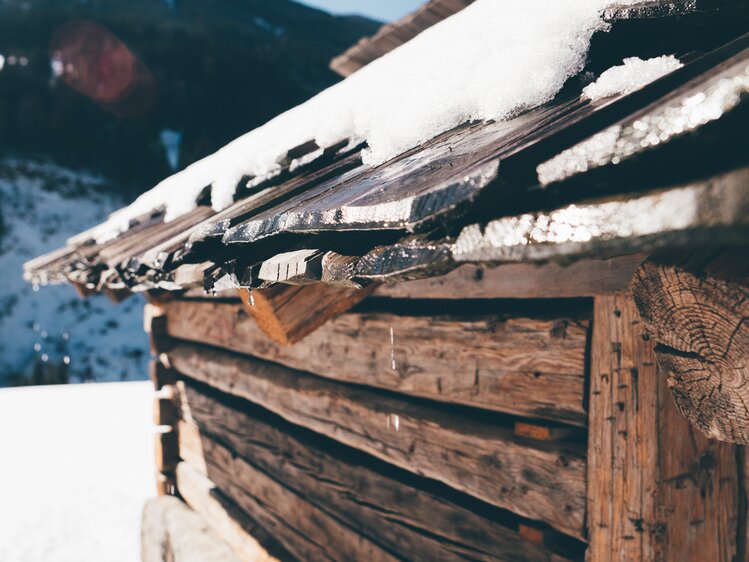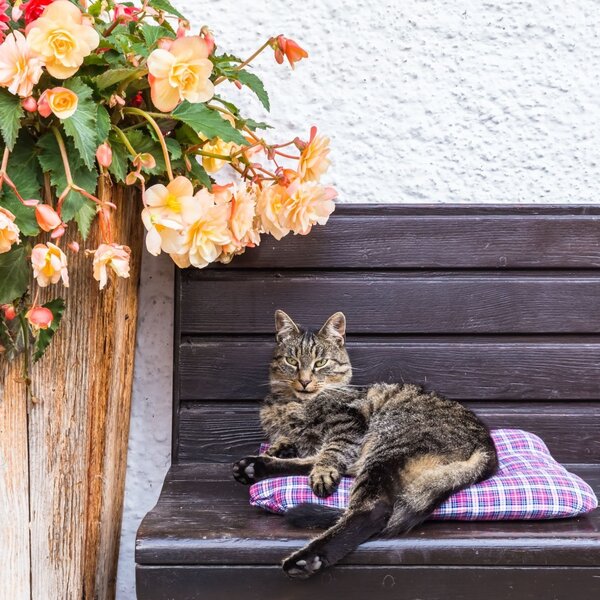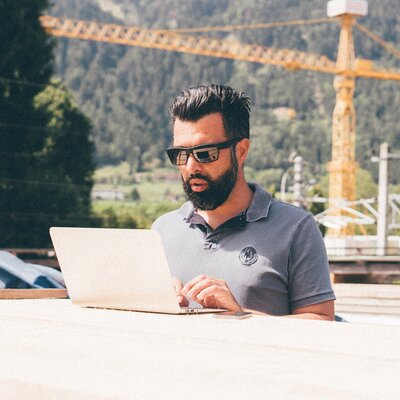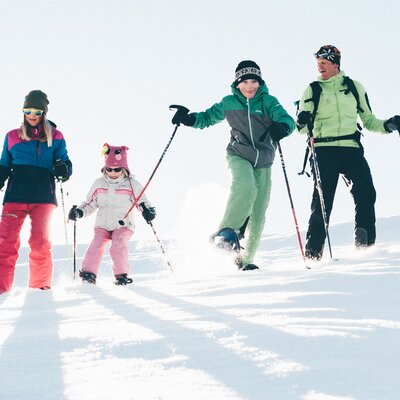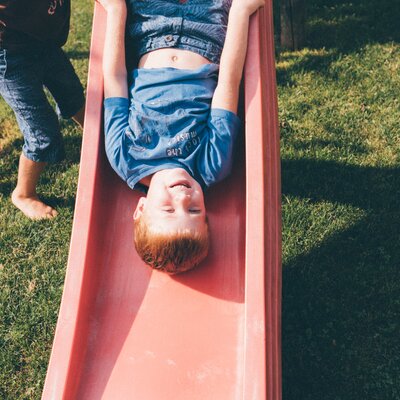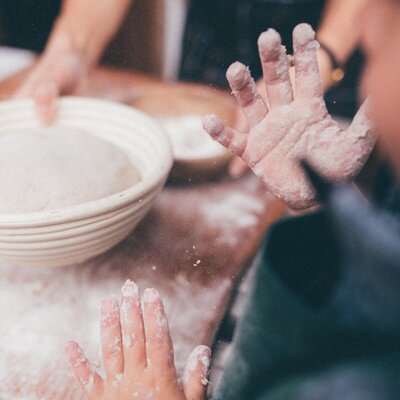Growing up a stone's throw away on a farm in Obergail, Elfriede took a liking to farm life and the presence of vacation guests at a very early age. She was also clever and so the "not so fun" activities were delegated to the holidaymakers' children, who, for their part, really enjoyed what they were doing. That's how tourism works. You don't need a degree for that, a straight A, set, thank you. The Lesachtal farmer's wife felt where the roots of her tree of life should grow and soon returned to the valley after graduating from hotel management school in Villach. Not to Obergail, however, but to Stabenthein, just a few kilometers away. She married at the tender age of 18 and, together with Johann, who was barely older and more experienced at 20, took over the farm from her parents-in-law. A self-confident contribution according to the motto "Jugend forscht". Hats off, it worked.
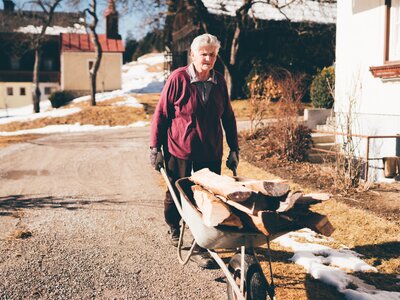
"We are a real farm. We don't have a petting zoo"
The Stabentheinerhof (dairy farm) scores with the classic advantages of the Farm holidays philosophy. Guests can move around freely, paired with authentic, straightforward hospitality that focuses on the essentials. This also works here, the proportion of regular guests is quite high. However, Elfriede believes that renting out has changed somewhat in recent years. "In the past, guests used to stay for up to three weeks, mainly mountaineers," she says looking back. "Today, it's mainly families with children who are interested in life on the farm. Baking bread and making yogurt and so on," says Elfriede, explaining her guests' motivation for coming on vacation. The adults are particularly interested and attentive when it comes to the production of food, such as baking bread. This is probably an indication that there is some movement in nutritional awareness.

"Cultural export to the land of the rising sun"
The bread bakery at the Stabentheinerhof (incidentally the last of its kind in the Lesach Valley) is heated once a week. A ritual lasting several hours, which guests are welcome to attend. Elfriede's favorite bread is, as she says, "healthy bread" made from pure sourdough with rye meal, spelt flour, organic wholemeal rye flour, hay flowers, tiger nuts, sunflower seeds and much more. You could say that the Lesachtal people were born with a love of baking bread. At the Stabentheinerhof, however, it took a curious ethnologist and professor from the University of Tokyo to research European bread culture and come directly to the Stabentheinerhof through recommendations. What happened next sounds pretty crazy, but it happened and is backed up by facts. In order to set up the bakery as a clone of the original in Ome near Tokyo, it was photographed, dissected and documented for three days. An oven setter from Lienz was hired especially for the project and the building materials were also imported from Austria. It was only after this dramatic experience that Elfriede and Johann decided to revitalize the original at the farm. And so they do, because a copy that causes a sensation in the Far East can also kiss a dusty original out of its slumber with a little funding from the federal, state and European Union.
"Winter is the time for relaxation and further training"
In addition to the animals, Elfriede devotes most of her time in the cold, dark months to herself and her loved ones, who come home around Christmas with their children. To their home, their little corner of the world. "We rest until February," she says, "and only eat "Stockblattln" (an apparently delicious regional dessert that I haven't heard of yet)," she smiles with a hint of anticipation for this time of doing nothing, which will soon be upon us. Although the "laissez-faire" here is not at all focused on the personal urge for further education and personal development. While Elfriede indulges in handicrafts, cooking and - how could it be otherwise - bread baking courses, her husband takes advantage of the various further training courses offered by the Rural Training Institute to quench his thirst for knowledge and not stand still. Incidentally, between December and March there is also time for village life, which undoubtedly still exists here in Lesachtal. It may not (yet) be a UNESCO World Heritage Site, but it also needs to be nurtured.
Stefan Heinisch
contentkumpanei.com, 34 Article(s)
